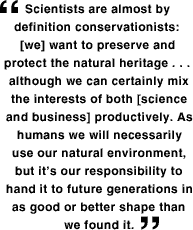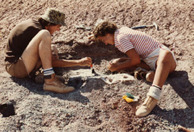|
|
||
|
|
||
|
Padian has been active in efforts to outlaw the sale of fossils by commercial vendors. When fossils are collected and sold by commercial businesses, profit, not preservation, is the main motivator. Valuable information is lost when fossils are not housed in museums where they can be studied and made available to the public.
According to Padian, the commercial fossil trade hurts both science and education. Because commercial specimens are not collected by paleontologists, doctored specimens may sometimes be sold to museums and private collectors. The presence of fakes has given both the scientific community and the general public reason to question the legitimacy of commercially sold fossils. Padian would like to see the U.S. establish laws regulating the collection and sale of important fossils. He believes that the public should have ultimate control over the fate of scientifically valuable specimens and that the U.S. should forbid fossil exportation, as many other countries have done. He suggests that cooperation between scientists and commercial collectors may be strengthened if landowners are offered a finder’s fee for their discoveries, and commercial collectors excavate with the supervision of knowledgeable scientists. What can scientists and commercial collectors
do to protect fossils? Read Padian’s editorial in Palaeontologica Electronica, “Feathers, fakes, and fossil dealers: How the commercial sale of fossils erodes science and education,” for further discussion on commercial fossil sales. |

 Two students clean a trackway, a rare and fragile source of data on the evolution of vertebrate life. |
|
| Home | What’s new | About UCMP | History of life | Fossil collections | Other resources | ||